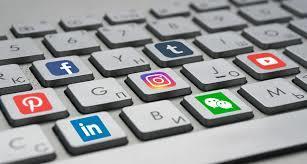The world now revolves around the internet, and social media has become the American national pastime, or so it seems. Every industry in the US has been in some way, shape or form molded and shifted by the internet and social media alike.
A simple post can alter the way an entire population views a particular issue or company, for better or worse. According to the World Bank, the healthcare industry occupies 10 percent of the global GDP and 17 percent of the United States GDP.
Over $7 trillion is spent per year globally. With such a crucial influence already, the healthcare industry must look at the impact it can have online and social media, alike.
According to a new survey from the tech analyst company ReportLinker, 46 percent of Americans admitted to checking their smartphones before they even get out of bed in the morning. No surprise to most, the guiltiest of them all is the generation Z (ages 18 to 24-years-old), 66 percent exactly, who reach for their smartphones before they rise out of the covers.
These statistics are not shocking to most reading this article. They could be reading this article from their smartphones.
With technology just at our fingertips, if we do not know something, we can google it for the correct answer. This can be said for where consumers seek healthcare information as well.
Nineteen percent of smartphone owners have at least one health app on their phone. Exercise, diet, and weight apps are the most popular types.
Consumers heavily rely on information found online and use the internet to gather healthcare information and connect with other patients to garner support and learn about similar conditions.
Patients also tend to seek information via social media that assists in the selection of doctors, specialists, and hospitals to make informed decisions on the best practices to seek care.
With nearly every patient holding onto their smartphones so tightly, googling every symptom for answers before they consult with their physician, it has become imperative for healthcare organizations to be active on social media and to provide accurate information on their websites. Every footprint left online aids in connecting with the patients and clients alike.
Apple, Inc., can attest to this idea with their launch into healthcare ventures in March of 2018.
The release of the Apple Health Record and the Apple Watch health features made them a contender in the market, and according to the CEO, Tim Cook, this is only the start. Apple is an expert when it comes to marketing its brand through multiple mediums, naturally online, and through social media.
However, curiously enough, Apple does not use social media as most companies would. The tech giant does not need any further exposure.
In the US, currently, 45.1 percent of smartphone users own an iPhone. Having that large of a market share only benefits Apple as they move into the healthcare industry.
As of 2018, over 120 healthcare institutions are a part of Apple’s health record beta, including Adventist Health System, Mount Sinai, Cleveland Clinic, Intermountain Healthcare, LabCorp, and more. The company is also reportedly working with startup Health Gorilla, which helps doctors order and ingest lab test data.
Social media is a great tool for healthcare organizations. It is no longer an option to use social media in healthcare; it is mandatory to remain relevant. However, healthcare organizations need to be smart about how they embark on this endeavor.
Patients and providers need to have positive and accurate exchanges of information. It can be used as a medium primarily for community engagement activities such as fundraising, customer service, and support, the provision of news and information, patient education, and advertising new services. Social media is like a referral site on steroids.
Through social interactions, patients can develop a first impression of a hospital and/or physician. The healthcare organization’s branding online has never been more critical.
If healthcare organizations are not engaging with the community they serve on every social media platform; then they will inevitably fall behind. An organization’s marketing department has access to a multitude of tools and has access to analytics that can identify which platforms work the best and the best times to post to maximize the exposure to the community.



 Your new post is loading...
Your new post is loading...







